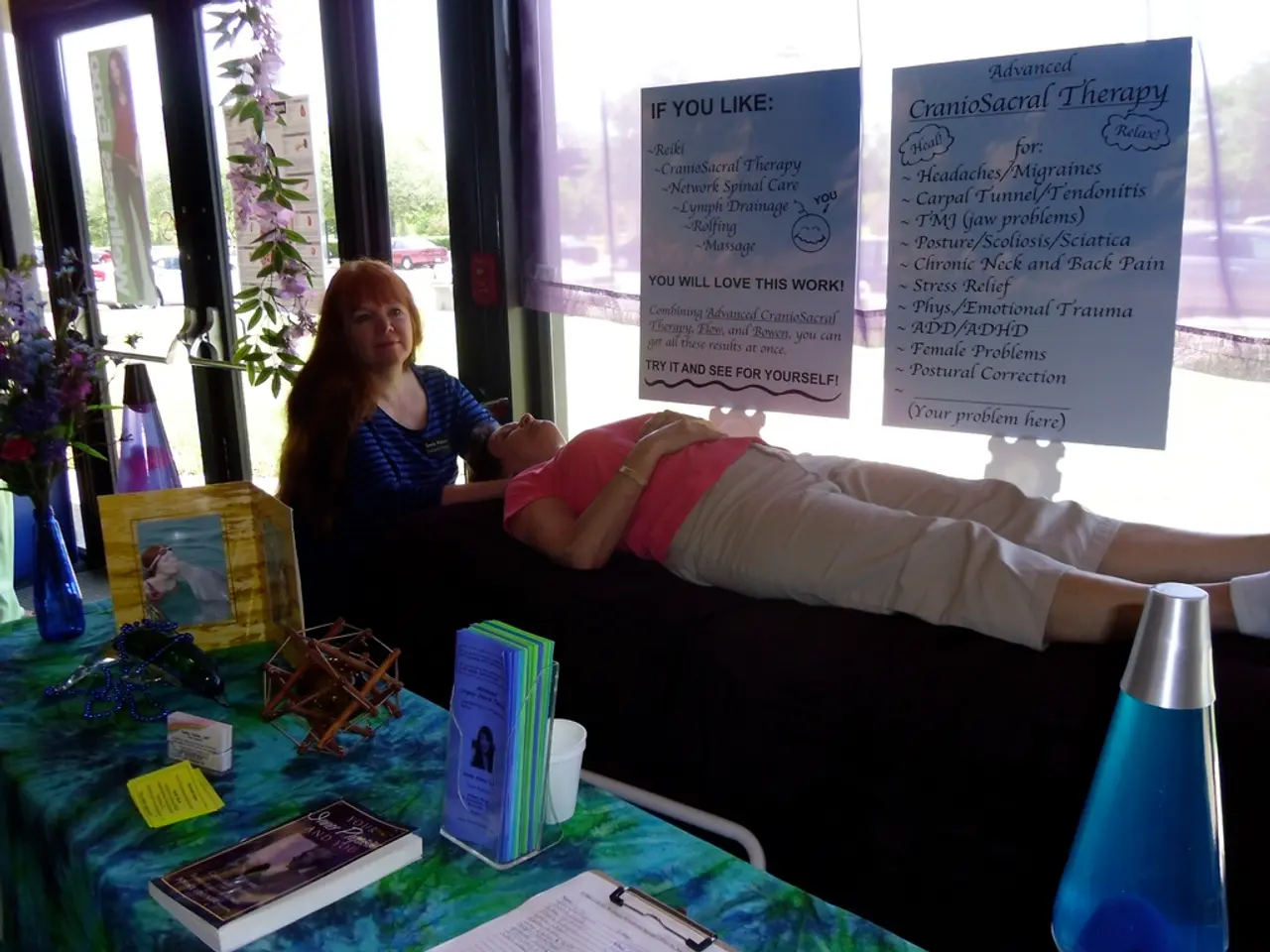The Ascent of Digital Therapy Sessions
In today's digital age, the realm of healing and wellness has expanded beyond physical boundaries, with virtual healing services offering a new dimension for individuals seeking emotional support, mental health care, and overall life stability.
The Booming Virtual Healthcare Landscape
The mental health apps market, valued between $7.48 billion and $8.03 billion in 2025, is growing annually at 14-17%, with projections suggesting expansion to $15.95-$17.52 billion by the early 2030s [1]. This growth reflects a clear and sustained demand for digital mental health solutions.
Research indicates that online therapy is as effective as in-person therapy, with 86% of clients making equal or better progress using virtual methods, especially hybrid chat and video formats [2]. Studies also show that telehealth improves access and clinical outcomes for mood disorders, comparable to in-person treatment [4].
As the stigma around mental health diminishes, users are incorporating digital mental health tools into their daily wellness routines rather than using them only in crisis. Increased comfort with digital healthcare post-pandemic supports sustained utilization [1][2].
The Future of Virtual Healing
The mental health app and virtual service markets are expected to double in size over the next decade, driven by ongoing demand, innovation in digital therapeutics, and increasing normalization of virtual care [1][3]. Future services will likely blend mobile apps, teletherapy, social media interventions, AI-driven tools, and hybrid formats to optimize personalized care and engagement [1][2][5].
Policy and funding support will be crucial to maintaining growth and addressing affordability, especially to reduce barriers caused by healthcare coverage limitations or out-of-pocket costs [3][4]. Ongoing research will refine best practices, ensuring high quality and efficacy of virtual mental health interventions [2][4].
Efforts to bridge the digital divide and expand access for underserved populations via social media and other platforms will be central to equitable mental health care delivery, potentially involving collaborations between policymakers and tech companies [5].
Embracing Virtual Healing Across Industries
It is now relatively simple to find a yoga instructor, a therapist, or someone to guide you through meditating with crystals online. Counseling, coaching, emotional support, and mental behavior assistance are now accessible through virtual healing services. Many businesses are prioritizing online options such as classes, digital pick-up and delivery confirmation, health resources, and healthy food delivery.
Individuals seeking these services have a much broader array of options and can better customize their experience. Virtual healing can potentially make a tremendously positive impact on an individual's life and wellbeing. Guides for finding the right crystals for meditative needs are available online, along with techniques for cleansing them.
Ainsley Lawrence, a writer who frequently discusses good health, balanced life, and better living through technology, is one of many voices advocating for the benefits of virtual healing. Kristina Karim, a Reiki Master Teacher, believes virtual sessions are one of the best ways to get the most out of her sessions.
In summary, virtual healing services in mental health have matured into a mainstream, effective, and rapidly growing sector with promising prospects for expanded innovation, accessibility, and integration into routine care worldwide. This trend is underpinned by strong market dynamics, robust clinical evidence, and evolving health policies supporting telehealth and digital therapeutics [1][2][3][4][5].
- Expanding from the realm of yoga and meditation, various mental health-and-wellness therapies-and-treatments are now being offered virtually, enabling more individuals to access personalized care and emotional support.
- While stigma around mental health relief once restricted its accessibility, the growth of science-backed mental health apps and online therapeutic methods indicates a new normal in the health-and-wellness industry, where support is reaching a broader range of individuals, whether through traditional teletherapy or cutting-edge AI-driven tools.




